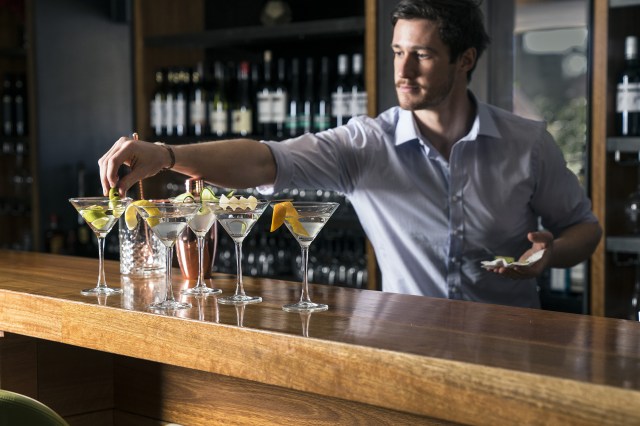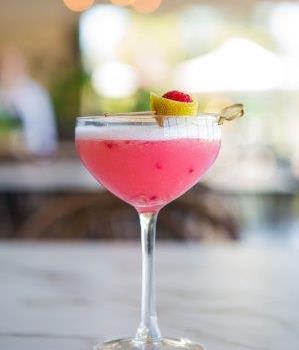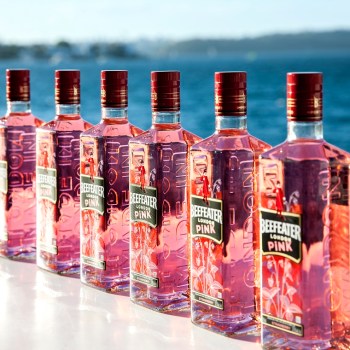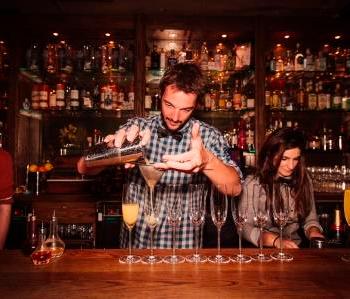By , editor Hospitality
Australian consumers are drinking less but are happy to spend more for quality, said industry leaders at the recent Pub Leaders Summit.
Kurtis Boseley, group bars and cocktail manager at the Public House Management Group (PHMG) (pictured) and Luke Hiscox from the Union Hotel in Newtown discussed the premiumisation of beverages and both agreed that patrons are opting for quality over quantity.
“I think the biggest [trend] over the last 12 months has been the lower ABV option. People are more aware of how much they’re drinking – to an extent, especially people who are driving but might still want to enjoy a few cocktails,” Boseley said.
“What I’m seeing is quality over quantity,” Hiscox added. “People are willing to spend more on that better beer or that craft beer, or a scotch or gin … They’re also covering a couple of bases and switching between the beer and gin and wine, and stuff like that.”
Boseley, who oversees the bar offering at PHMG venues including the Woollahra Hotel, Bistro Moncur, Four in Hand and the Collaroy Hotel, said that despite the consumer’s movement towards premium beverages, operators shouldn’t neglect the old favourites.
“It’s so important not to cut off your nose to spite your face. Your biggest sellers are still going to be your VBs, your Carltons, your News – all those style of drinks,” he said. “Be careful not to get away from your biggest sellers or the stuff that’s always going to be there. You have them as your base, then you can increase your offering or your range.”
The story is a little different at the Union Hotel, however, which offers an extensive craft beer selection.
“Our biggest sellers are the ones that are just above the macro in terms of price. We’ve got Carlton and Reschs and Super Dry on tap but the other 19 taps are heavily rotating. Young Henrys and Stone and Wood are particularly big. I think people come in for the crazy stuff … but they’ll go back down to Stone and Wood or 4 Pines or something at the $7mark,” said Hiscox.
The movement towards premium beverages can be bolstered with the help of well trained staff, said Boseley, who encouraged operators to take their team members out to a wide variety of hospitality businesses to ensure they’re engaged with the industry and committed to enhancing the experience on offer at their own venue.
“In our group, a lot of time is going into the training of staff – they’re a lot more knowledgeable which means the consumer is more [receptive] to the bartender giving them some options or putting their faith in the bartender to give them something [new],” he said.
Generally speaking, consumers today are already quite excited about trying new things and learning about new food and beverage experiences, so the traditional ‘upsell’ is a lot more discreet than it was in years gone by, Hiscox added.
“We’re not doing it conventionally. People come in, they’re excited about the venue, maybe they’ve heard about it or they’re quite passionate already about craft beer, maybe they have their favourite brewery. They look at the board and it’s changing quite a lot – there might be six different beers each week … I think we’re not upselling, but we’re letting them explore the menu and then kind of steering them in the direction of a limited release, which might be more expensive.
“The margins are the same across all taps, but if there’s a particular event on we might be serving a beer that’s $13 or $14 a schooner, and people have heard about it for the months coming. It might be a beer that we don’t have in town that often – they kind of take themselves there,” he said.
Upselling is more about offering a unique and customised experience, said Boseley, who agrees that the more traditional ways of increasing spend per head have been replaced with creative approaches tailored to the guest.
“I think it’s really important when we’re talking to our staff that they get away from this idea of upselling. You need to get them away from the thought process of ‘I’m trying to upsell to make more money’ and more towards the idea that you’re giving your customer a better experience or you’re better catering for their drinking based on what they want.”
And with the lines between restaurants, bars and pubs continuing to blur, it’s easier for publicans to offer – and cash in on – this premium experience offering, Boseley said.
“More people are looking towards venues that offer them more than a beer or a vodka. They’re looking for something that’s going to be more of an experience, whether it be the food … or the style of drink they’re drinking. I think a lot of the more pub-style venues are now offering cocktails and drinks that would have often only been found in small bars. Gone are the days where the drinks in hotels were just spirits and beers – you’re able to find more of the small bar or cocktail bar drink [offerings] in a lot of our hotels.”



